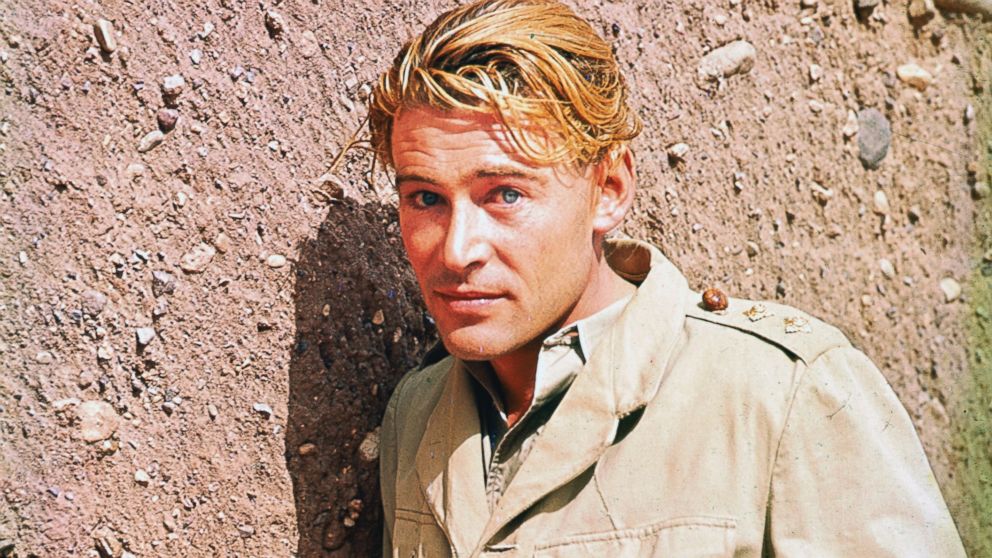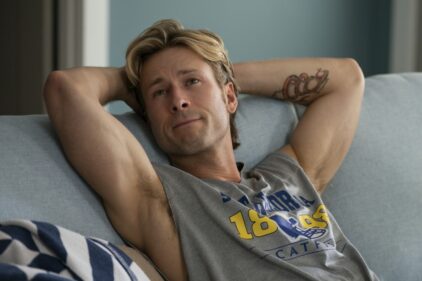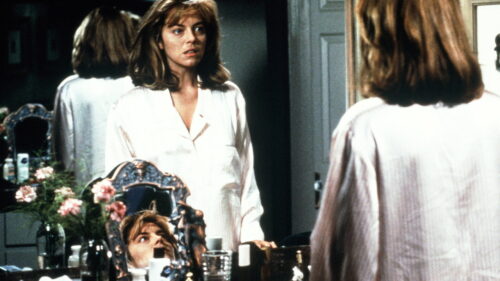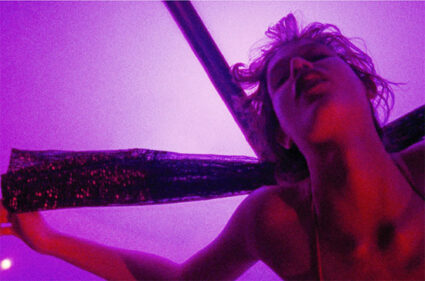Peter O'Toole, who died this weekend at 81, was great in great films and great fun in bad ones, and equally convincing as a scoundrel and a saint. The star of “Lawrence of Arabia,” “Becket,” “The Ruling Class,” “The Stunt Man,” “The Lion in Winter,” “My Favorite Year” and other classics was part of an influential wave of young British actors who split the difference between intensely detailed naturalism and outsized movie star radiance. Neither biographers nor O’Toole himself were entirely sure where he was born—probably County Galway, Ireland, though it might have been Yorkshire, England—but he presented himself publicly as the consummate stereotypical Irishman, a hard-drinking storyteller, sentimental but tough. Like his generational contemporaries Michael Caine and Albert Finney, you could picture O’Toole, the son of a nurse and a metal plater/bookmaker, hanging the same movie posters that showcased his handsome face. “I’m a working stiff, baby, just like everybody else,” he once said.
From the seventies onward, O’Toole was so closely identified with his self-created charming reprobate image—like an English rockstar, only too civilized to destroy hotel rooms—that he probably could have played nothing but variations on that image. His drunken escapades (often in the company of Trevor Howard and Richard Harris, whom he outlasted) were legendary. The twenty years of his career after “Lawrence of Arabia” were a long trainwreck. He had severe health problems related to his lifestyle, and his wife left him for a younger man; he said he mostly gave up drinking in 1975, though he continued to talk about it in present-tense so much that it was hard to know how seriously to take him. Many of his middle-aged parts tapped into his aging bad boy image, notably 1980’s “The Stunt Man,” in which he played a Satanically wicked director toying with the title character’s body and soul; and 1982’s “My Favorite Year.” The latter was perhaps the first semi-official “Peter O’Toole as himself” role: Alan Swann, a soused troublemaking star-in-decline, was modeled on Errol Flynn but spiked with bits of seemingly personal brio. Proposing the Stork Club as a dinner option, Swann declares, “It’s been a year and a half. Surely they’ve repaired the wall of the bandstand by now.” The lines echoed O’Toole’s own instructions for a New Year’s Party at his house in Hampstead: “Fornication, madness, murder, drunkenness, shouting, shrieking, leaping, polite conversation and the breaking of bones: such jollities constitute acceptable behaviour, but no acting allowed.”
O’Toole played up his supposed pickled laziness in interviews and public appearances, and in his own writing (the two volumes of his self-deprecatingly titled memoir “Loitering with Intent” are marvelous; pity he didn’t get to write another). “”The only exercise I take is walking behind the coffins of friends who took exercise,” he liked to say. But his work ethic belied that image. Like most professional actors, O’Toole took certain parts mainly for the money: “What’s New, Pussycat,” I’m guessing, and Zaltar in “Supergirl,” and Sir Cedric Charles Willingham in King Ralph, and Tiberius in the X-rated depravity-fest “Caligula.” “Money is always a pressure,” he confessed in an interview.
But he brought such invention and craft to the work that he never seemed to be coasting. Of “Caligula,” O’Toole declared, “I don’t think I’ve given a funnier performance in my life,” and he wasn’t wrong. His eighth and final Oscar nomination was for 2008’s May-December romance “Venus,” which critic Travis MacKenzie Hoover described as “a machine for providing O’Toole with grandiloquently clever lines, and perhaps trading on his reputation as a drunken hellraiser.” But here, too, you can see O’Toole putting flesh on what might have been mere armature. It’s not a deep movie, but there’s such frailty and regret in the actor’s performance as an old man struggling to recapture the blush of youth that you can picture what a moving King Lear he might have made. (“Lear” was the first play O’Toole bought a ticket to see, in 1952; he had just thirty shillings, and he spent all of it to see Michael Redgrave in the part.)
With strong material, though, O’Toole could be fantastic. He was sweet and awkward in the 1970s remake of “Goodbye, Mr. Chips,” ebullient and dangerous as Jack Gurney, 14th Earl of Gurney in “The Ruling Class,” a nobleman who loses his mind and thinks himself to be Jesus Christ and then Jack the Ripper. He was clever and ruthless in 1964’s “Becket” (opposite pub buddy Richard Burton in the title role), and older and mellower returning to the same part in a different context, opposite Katharine Hepburn in 1968’s “A Lion in Winter.” He brought a touch of class and wry humor to supporting roles, including the tutor in Bernardo Bertolucci’s “The Last Emperor” and the voice of critic Anton Ego in “Ratatouille.”
The title in the first line of every O’Toole obituary is, of course, “Lawrence of Arabia.” O’Toole played the dynamic yet mysterious title character, T.E. Lawrence, an English army officer who unites warring Beduoin tribes against the Turks in World War I, going “native” in the the process and alienating some of his staunchest English allies. The movie is rightly considered ahead of its time, for its embrace of ambiguity (we never get an explanation for what, exactly, drives Lawrence—not even a “dollar book Freud” explanation, a la Charles Foster Kane’s Rosebud) and for portraying Lawrence’s sexuality as with as much frankness as possible in 1962. As Roger Ebert wrote, “Using O’Toole’s peculiar speech and manner as their instrument, [the filmmakers] created a character who combined charisma and craziness, who was so different from conventional military heroes that he could inspire the Arabs to follow him in a mad march across the desert. There is a moment in the movie when O’Toole, dressed in the flowing white robes of a desert sheik, does a victory dance on top of a captured Turkish train, and he almost seems to be posing for fashion photos. This is a curious scene because it seems to flaunt gay stereotypes, and yet none of the other characters in the movie seem to notice–nor do they take much notice of the two young desert urchins that Lawrence takes under his protection. What Lean, Bolt and O’Toole create is a sexually and socially unconventional man who is simply presented as what he is, without labels or comment.”
Screenwriter Robert Bolt circles the mystery of Lawrence without ever diving into his center, and David Lean uses the young and beautiful O’Toole as a living sculptural object, fetishizing his blue eyes, blond hair and pale skin (bronzed by the sun as the tale goes on). Such a controlled and exact film might have been a success anyway with a different actor in the lead, as long as he was attractive enough to be a focal point for the spectacle (Marlon Brando and Albert Finney were considered). But O’Toole humanized the hero in ways that seem miraculous when you consider the caginess of the story that surrounds him; he does it, I think, by making Lawrence’s conflicted and volatile emotions transparent even when the film keeps his motives mysterious. You never think, “This movie is a mess” or “This character makes no sense” because O’Toole makes sure you see the character as a paradoxically ordinary extraordinary man, cocksure and idealistic and naive, inclined to get drunk on his own power and success, but always thinking, always questing, always figuring things out. That T.E. Lawrence seems so cheerfully ignorant of That Which Cannot be Done is what enables him to persuade others to help him do it; when he does do it, his followers get a contact high from his grandiosity, and he from their worship. Adulation is his fuel, but it only takes him so far. You see the euphoria on Lawrence’s face but also the knowledge that it’ll fade soon, and he’ll have to work another miracle to feel it again.
You always know what Lawrence is feeling even if you don’t know what he’s thinking. That rare talent separates great actors from merely good ones. O’Toole was one of the greats.












